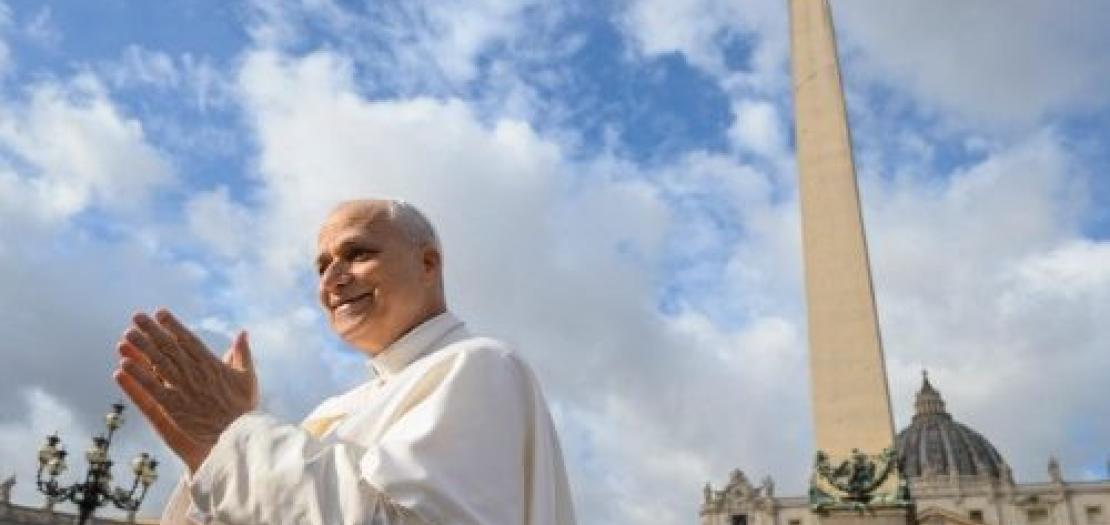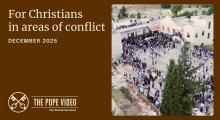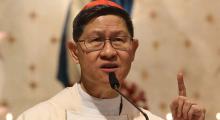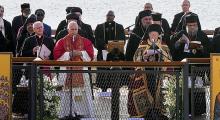Issued by the Catholic Center for Studies and Media - Jordan. Editor-in-chief Fr. Rif'at Bader - موقع أبونا abouna.org

“In the months after the earthquake, we worked side by side, breaking down old walls of division and showing that the deepest form of interreligious dialogue, as Pope Francis used to say, is the dialogue of life, especially in service to the poor."
Bishop Paolo Bizzeti, who served as president of Caritas Türkiye from 2019 until just a few days ago, still cherishes that interreligious collaboration as one of the most meaningful experiences of his many years in the country.
The bishop, who was Latin Apostolic Vicar of Anatolia from 2015 to 2024, knows the region well.
In an interview with Vatican News, he shared his reflections and hopes ahead of Pope Leo XIV’s upcoming apostolic journey to Türkiye — a visit that will take him to Ankara, Istanbul, and İznik, once known as Nicaea, for the 1700th anniversary of the first Ecumenical Council.
Vatican News: From 27 to 30 November, Pope Leo XIV will make his first apostolic journey. He will go to Türkiye, where Christians are a small minority. In your opinion, what significance does this visit have for them?
Bishop Paolo Bizzeti: To visit the flock in person and bring the closeness of the Good Shepherd — that is the purpose of these papal journeys. Türkiye is an immensely important country, not only because of its past — Christianity as we know it was born in Antioch, on the Orontes, in modern-day Türkiye — but also because of the vitality of Christian life today. Türkiye is a kind of laboratory, where even the Latin Church must be present, actively and humbly.
Q: The Pope will also mark the anniversary of the Council of Nicaea.
A: The Pope’s visit is also a major ecumenical opportunity, and the anniversary of Nicaea will help revive the spirit that animated the Council Fathers: expressing faith in new terms and categories, and seeking what unites, as Pope Saint John XXIII urged. That is a task we must always begin anew.
Q: What kind of religious landscape will Pope Leo encounter upon his arrival?
A: Türkiye is a mosaic. There’s political Islam, traditional religious Islam, the mystical Sufi current, the Alevi movement, agnosticism, or a sort of deism for many — and then, of course, significant Christian minorities. Catholic pastoral work is severely limited, however, by laws and customs that make it difficult to build chapels, youth centers, or cultural venues. Everything happens within a few parishes, established a century ago under the Treaty of Lausanne.
Q: On 6 February 2023, an earthquake measuring 7.8 on the Richter scale struck the border areas between Syria and Türkiye, causing, according to reports, over 50,000 casualties. Caritas Türkiye's response, despite enormous difficulties, was massive, committed and effective. What was the experience like?
A: The real death toll is believed to have been far higher, and hundreds of thousands were displaced. It was an immense tragedy that revealed our human frailty, and its effects still weigh heavily on the poorest communities. For us at Caritas, it was a trial that forced us to grow quickly — not without difficulties and mistakes. But we were very happy to have made our contribution, to have collaborated with local and national relief organizations, and to have been summoned and officially thanked in Ankara. We were recognised, something that had never happened before, as an organisation that helps people selflessly, without distinction. As Catholics, we are proud to have made our small contribution, putting to good use the aid that arrived generously from the four corners of the earth.
Q: Does the work of Caritas Türkiye, which helps both Muslims and Christians without discrimination, have a positive effect on relations between the two religious groups?
A: In the months after the earthquake, we worked side by side, breaking down old walls of division and showing that the deepest form of interreligious dialogue, as Pope Francis used to say, is the dialogue of life, especially in service to the poor.
Q: What effect do you think the Pope's apostolic visit will have on those who work for Caritas Türkiye?
A: For all Caritas workers, it will be a beautiful occasion to feel part of the People of God — united in service and in care for the most vulnerable, as Christians always have been, following Jesus, the servant of all.







